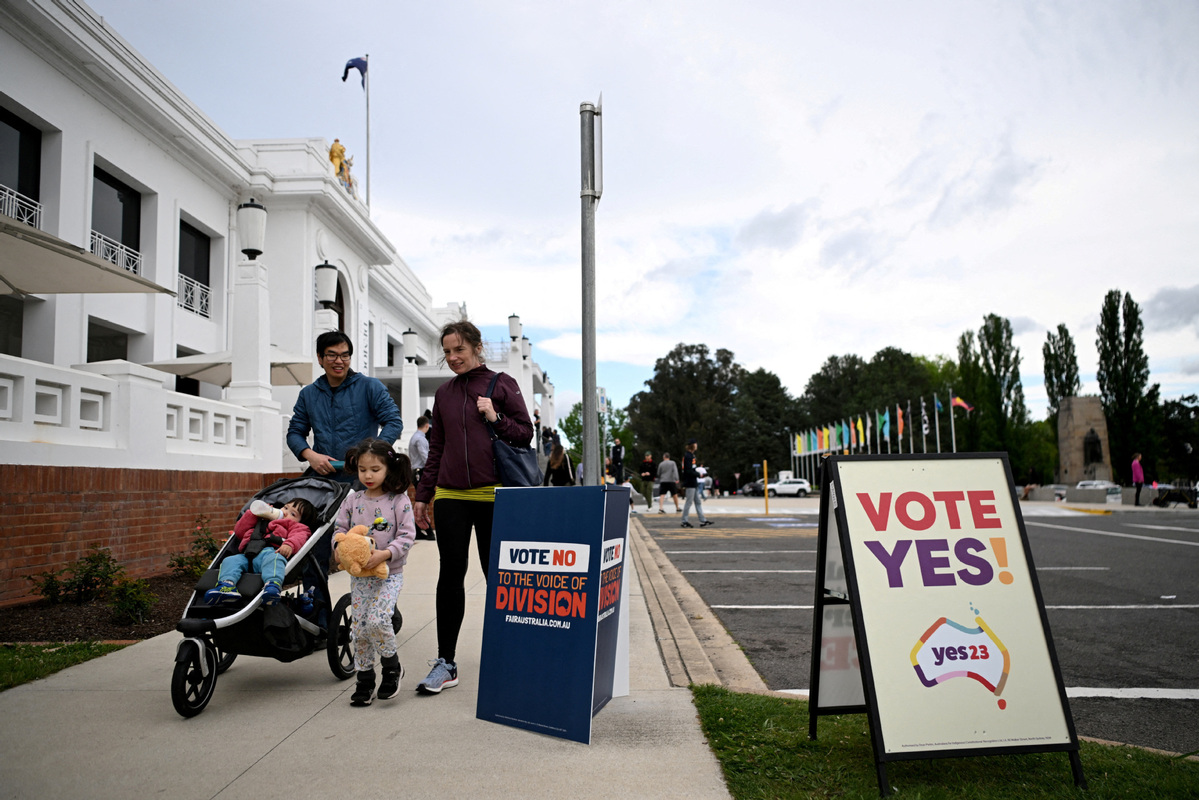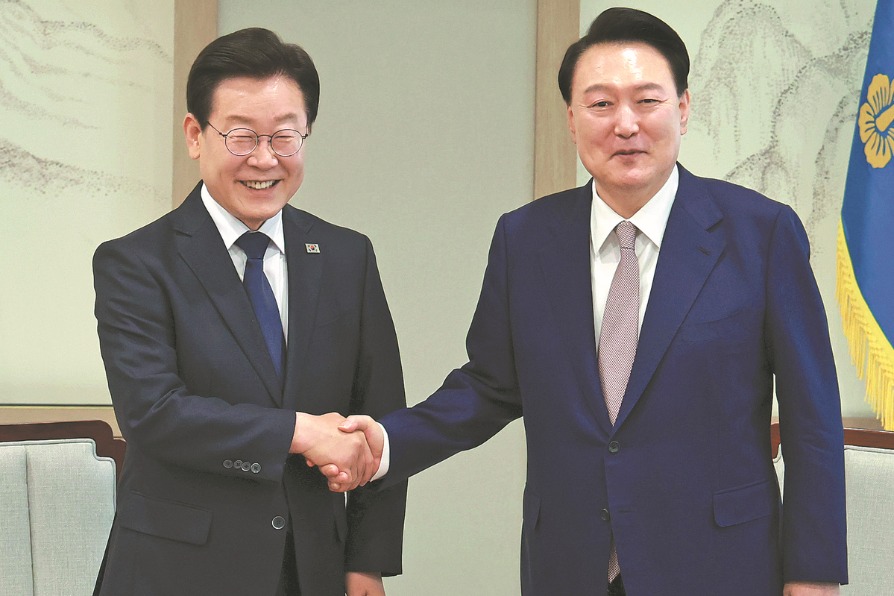Ruling parties lose weekend votes both in Australia, New Zealand


Australians have overwhelmingly rejected a call on Saturday to include an Indigenous Voice to Parliament in the constitution in a fiercely fought referendum which saw every state vote no to the proposal.
Meanwhile, across the Tasman Sea New Zealand's Labour Prime Minister Chris Hipkins conceded defeat in Saturday's election as the country swung towards the right.
Australia's vote was the first referendum in 22 years and leaves Prime Minister Anthony Albanese in a difficult position as this was a cornerstone of his election campaign last year. The recriminations for the referendum loss have already begun.
Sky News political editor Andrew Clennell said on Sunday that the failure of the Indigenous Voice to Parliament referendum is a "devastating loss" for both Albanese and the Labor government.
Australian National University historian Frank Bongiorno, who campaigned for the Voice, told SBS News that increasingly polarised politics and the rise of the "populist right" are giving opposition parties even more incentive to shoot down government proposals, something which played out in the Indigenous Voice to Parliament's thumping defeat.
Referendums have been nearly impossible to pass in Australia without bipartisan support, and Labor has never succeeded after bringing a referendum that was not backed by the opposition.
Australia's junior coalition party, the National Party, rejected the proposal last year even before the question had even been proposed while the bigger coalition party the Liberals followed suit in April.
Speaking on Saturday evening, Opposition leader Peter Dutton accused Prime Minister Albanese of failing to provide the level of detail that could have enabled bipartisanship.
"There is a real arrogance in the way in which the prime minister has approached his discussion with the Australian people," he told SBS.
Lorena Allam writing in the Guardian Australia Sunday said: "Australia has overwhelmingly voted not to recognise Indigenous people in the constitution, and the nation has changed forever."
"Plenty will be said in the coming days about the campaign and how it all went down, much of it by non-Indigenous people who already have power, influence and access to the media to prosecute their arguments. In that way, the country will be much the same as it was last week: a place where the voices of First Nations people are drowned out, talked over and misrepresented in a national conversation that is forever about us, without us."
"It will take us months and years to grasp the full impact. But it is already blindingly clear that the result has been deeply hurtful for First Nations people, regardless of how we voted."
Katherine Murphy, also writing for the Guardian said on Saturday: "Tonight, we've failed the empathy test."
"Indigenous people had asked to be seen and heard in their own continent. That request has a context. British colonists occupied a country. There was a fiction the land mass was unoccupied. Waves of arrivals then settled in Australia by force. Country was seized. Resistance was crushed, frontier battle by frontier battle. That silencing of First Nations has never been fully unwound. The voice to parliament was supposed to be an institutional gesture ending two centuries of silence. But a majority of us said no."
Across the Tasman Sea New Zealand's Labour Prime Minister Chris Hipkins conceded defeat in Saturday's election as the country swung towards the right.
As of Sunday, the National Party, led by former airline executive Christopher Luxon, looks like it will be forming the next government although he may have to do that with the help of minor parties in a coalition.
Analysts say Luxon may have to reach out to NZ First leader Winston Peters to hold a clear majority in the chamber.
Labour's defeat in New Zealand ends six years in which the party was swept to power led by Jacinda Ardern promising social reforms and new economic wellbeing for the tiny island nation.
During her period in government, Ardern had to contend with a terrorist attack on a Christchurch mosque which left 51 people dead and the pandemic.
Ardern unexpectedly stepped down as prime minister in January, saying she no longer had "enough in the tank" to do the job justice.
She won the last election in a landslide, but her popularity waned as people got tired of COVID-19 restrictions and inflation threatened the economy.
According to the ABC, the result will "reshape NZ Labour, with several senior members now likely to lose their seats, including Foreign Minister Nanaia Mahuta."
karlwilson@chinadaiyapac.com



































